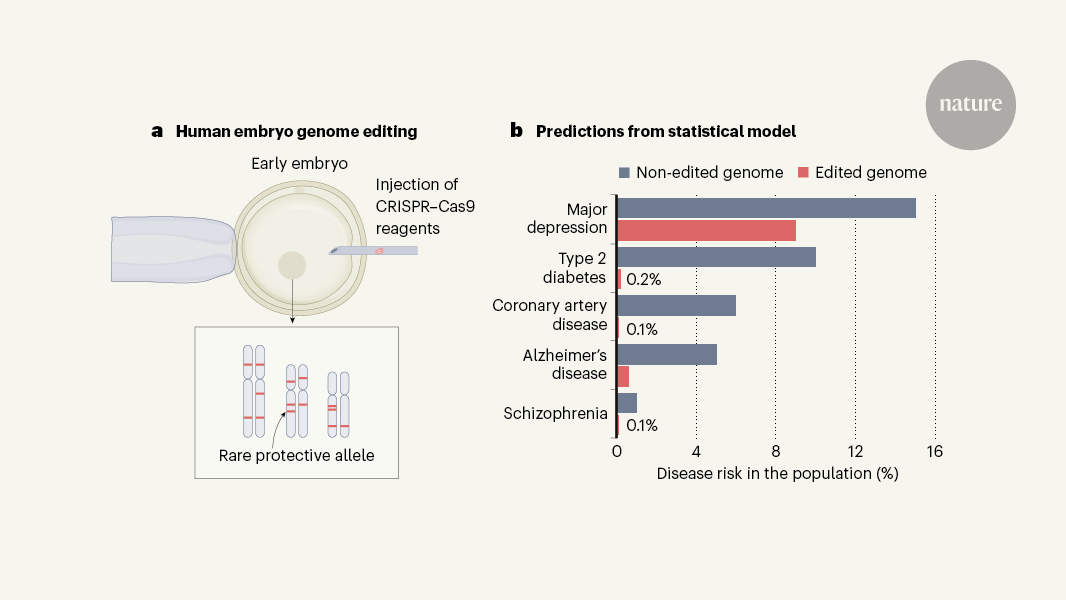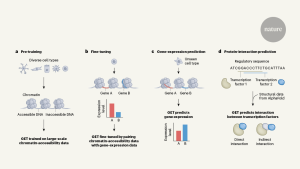
Despite rosy predictions, embryo editing by humans against disease is uncertain and unsafe
Implications of multiplex genome editing for the lifespan of disease-associated genetic variants: A research study by S.C. Visscher et al
S.C. is supported by a research grant from the National Human Genome Research Institute of the National Institutes of Health (grant no. R01HG011711), is a paid consultant and holds stock options at MyHeritage, and collaborates with 23andMe and Juno Genetics.
Human-gene-editing science and technologies are on their way to be applied with precision and at scale, even if it will be some decades before this can be done. The intervening time should be used wisely. When that time comes, Societies need to be ready, understand the dangers and know what to do.
Multiplex technologies, currently in development, will allow for rapid DNA editing at many locations, in the coming decades. The researchers found that, in some cases, editing a single variant associated with a polygenic disease can have strong effects, and, with the exception of MDD, editing up to ten genes associated with a disease can reduce its lifetime prevalence by an order of magnitude.
Peter Visscher, a statistician and geneticist at the University of Queensland, Australia, and his colleagues modelled the consequences of simultaneously editing specific variants linked to a number of diseases, including Alzheimer’s disease, schizophrenia, type 2 diabetes, coronary artery disease and major depressive disorder (MDD).

